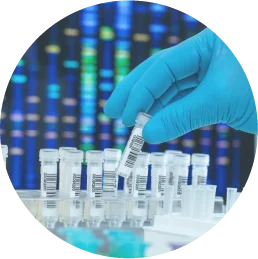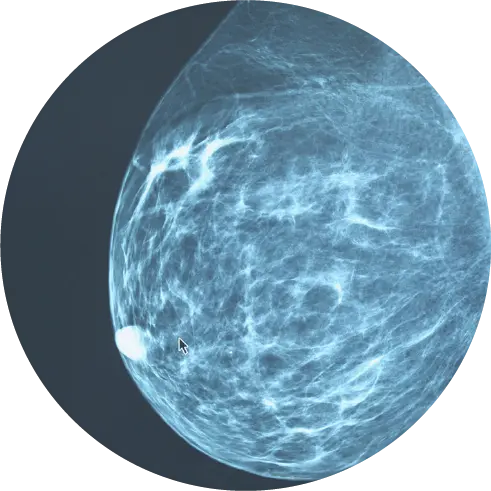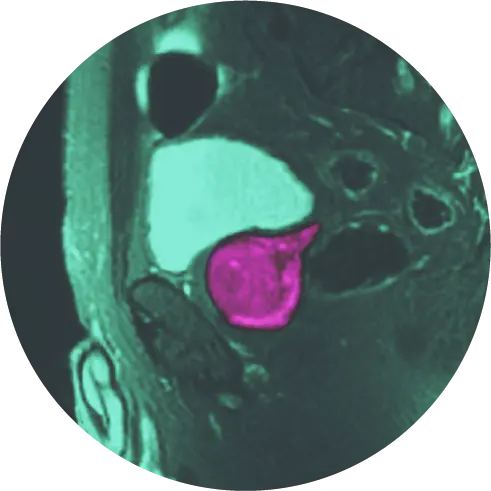Whether you are recovering from prostate cancer or considering your options, the nature and length of your recovery can depend on how well you tolerate your prostate cancer treatment. The various treatment options each have consequences for recovery and can significantly affect your quality of life. Think of your recovery as a holistic approach to healing that may involve coping with side effects but also entails making healthy choices.
Prostate Cancer Treatments
Medical interventions for prostate cancer depend on whether the cancer is localized, how aggressive it is, and if it has spread. Different types of cancer have very different treatment success rates. A “staging” process determines which treatment is best.1 Some prostate cancers involve no treatment at all and simply require monitoring. Your team of doctors will discuss the stage and progression of your prostate cancer to decide on a course of action. These are some of the possibilities:
Surgery
Surgery removes the prostate and some of the surrounding lymph nodes. The surgery types include a radical prostatectomy, which removes the entire prostate and seminal vesicles. A robotic or laparoscopic prostatectomy is less invasive than a radical prostatectomy and uses robotic instruments to remove the prostate gland.
Radiation Therapy
Various types of radiation therapy use high-energy cells to destroy cancer cells and can involve several treatments over time. External beam radiation therapy uses a radiation machine outside the body to focus the treatment. Brachytherapy is internal radiation therapy involving the insertion of “seeds” that release radiation into the prostate. Intensity-modulated radiation therapy uses strong radiation with a CT scan to direct the location and dose. Proton therapy is external beam radiation that uses protons to kill cancer cells.
Focal Laser Ablation & Other Minimally Invasive Therapies
As an early pioneer of focal laser ablation, also known as laser focal therapy, HALO offers the prostate cancer treatment as a minimally invasive treatment option for patients.2 This procedure involves placing the patient inside an MRI scanner to display images and thermal maps on a computer screen. A thin laser fiber is guided to the tumor, and laser energy is applied to ablate or kill cancer cells.
In addition to laser focal therapy, HALO also offers TULSA-Pro, HIFU, and cryotherapy as minimally invasive treatments for prostate cancer. To learn more about these services, please reach out to our team of prostate experts.
Systemic Treatments
Systemic treatments for prostate cancer refer to medications, hormonal therapy, chemotherapy, bone-modifying drugs, immunotherapy, and radiopharmaceuticals. Each of these systemic treatments involves subsets of options.3
Side Effects of Prostate Cancer Treatment
Each treatment mentioned previously can have significant side effects. You will not necessarily experience all these symptoms, but the following are typical side effects of each treatment.
Side Effects of Surgery
Prostate cancer surgery can disrupt several of the vital structures adjacent to the prostate, which may cause the following side effects:
Urinary Incontinence
The bladder is pulled down and connected to the urethra during prostate surgery. It is possible for the bladder sphincter (the valve at the bottom of the bladder) to be damaged, which can result in urinary incontinence or leakage. Nearly all men have some leakage after prostate surgery, which can take up to a year to resolve.
Sexual Function
Erectile dysfunction is a common side effect for most men after prostate surgery. Trauma to the area during surgery can cause loss of erectile function.
Fertility
It is difficult for a man to father children through sexual intercourse after prostate surgery if their procedure includes the removal of the prostate and seminal vesicles. Individuals who might want to have children should collect sperm prior to treatment and save them as part of sperm banking.
Side Effects of Radiation Treatment
Radiation treatment can disrupt vital structures affecting bowel, urinary, and sexual functioning.
Urinary and Bowel Symptoms
Some temporary symptoms include urinary and bowel urgency and loose stools.
Erectile Dysfunction
Just as with surgery, radiation can damage vessels and nerves resulting in erectile dysfunction. Radiation therapy generally has less of an effect on erectile dysfunction than surgery does.
Fertility
With radiation therapy, fertility is nearly always impaired.4 Damage to prostate cells and seminal vesicles during radiation is responsible for fertility problems.
Side Effects of Hormone Treatment
Testosterone-reducing drugs can have several side effects, including loss of sexual desire, compromised bone density resulting in increased fracture risk, anemia, loss of muscle mass, memory loss, and hot flashes.
Side Effects of Chemotherapy
The side effects of chemotherapy depend on the drug(s) used but can generally include fatigue, pain, neuropathy, hair loss, appetite changes, diarrhea, low blood pressure, pain, and nausea.
Side Effects of Laser Focal Therapy
Laser Focal Therapy is a minimally invasive procedure offering rapid recovery, with most people returning to work the following day. The side-effect profile is much smaller, with improved urination and a lower risk of impaired bowel function and erectile dysfunction.
Lifestyle Approaches to Recovery
Recovery from prostate cancer treatment isn’t just about managing side effects. Healthy lifestyle approaches can also help you cope with treatment’s physical and emotional impacts. The American Cancer Society has a list of recommendations.5
Exercise – physical activity improves mood, increases muscle mass, and can give you more energy. Some evidence suggests that men who exercise have a lower risk of prostate cancer recurrence.
Good Nutrition – diet can impact your risk for several types of cancer, including prostate.6 Focus on a plant-based diet that includes fruits, vegetables, and whole grains. Reduce consumption of sugar, animal fats, and processed meats.
Quit Smoking – smoking is associated with an increased risk of prostate cancer recurrence. Quitting smoking will have a significant impact on your overall health and well-being.
Limit Alcohol Consumption – alcohol consumption can get out of hand if you use it to cope with the emotional impact of prostate cancer. Additionally, alcohol raises the risk of several types of cancer.7
Emotional Support – feelings of depression and anxiety are common with prostate cancer. Getting support through support groups, professional counselors, and others can help you cope. Counseling can also help in dealing with sexual functioning problems.
Continue with Preventative Screening – following up after treatment is critical to monitor the recurrence of prostate cancer. Remember to continue screenings for other types of cancers, including bladder and colorectal cancer, which you could be at higher risk for.
Recovery from Prostate Cancer and Your Health
Recovery from prostate cancer requires a renewed focus on all aspects of your physical and emotional health. The journey may be challenging, but with enough support and an acceptance of the expected side effects, you can go on to lead a vibrant life.
If you or a loved one has been diagnosed with prostate cancer and you are interested in learning more about minimally invasive therapies that have less negative side effects, please reach out to our team of HALO prostate experts today.
References
1 https://www.pcf.org/about-prostate-cancer/diagnosis-staging-prostate-cancer/prostate-cancer-staging/
2 https://www.halodx.com/prostate/prostate-cancer-treatment/
3 https://www.cancer.net/cancer-types/prostate-cancer/types-treatment
4 https://www.pcf.org/about-prostate-cancer/prostate-cancer-side-effects/infertility/
5 https://www.cancer.org/cancer/prostate-cancer/after-treatment/follow-up.html




